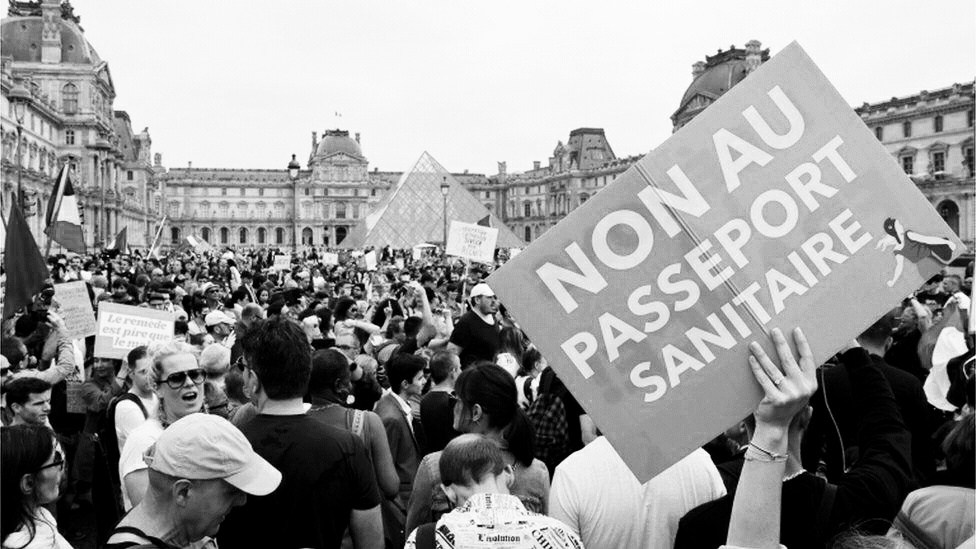BRUSSELS BEHIND THE SCENES
Weekly analysis and untold stories
With SAMUEL STOLTON
Other Brussels behind the scenes stories:
Why does the EU Olympic flag proposal matter?
Conversion therapy still exists in Europe
Barnier's last throw of the dice
A Discriminatory Summer?
The word of the week in the politics of the pandemic is 'discrimination.' The term was bandied around by France's Europe Minister, Clément Beaune, who was reacting to the UK's lifting of quarantine obligations for travellers from the US and the EU, except from France.
The UK government attributed its decision to concerns that the Beta variant of the virus had been picking up pace in France, something Paris denies, noting that it has predominantly taken hold in French overseas territories, and not on the mainland itself.
BRUSSELS BEHIND THE SCENES is a weekly newsletter which brings the untold stories about the characters driving the policies affecting our lives. Analysis not found anywhere else, The Brussels Times' Samuel Stolton helps you make sense of what is happening in Brussels. If you want to receive Brussels behind the scenes straight to your inbox every week, subscribe to the newsletter here.
"This is scientifically unfounded. It is a discriminatory decision, I think, towards the French, because all Europeans, even from countries with more difficult health situations than ours…are not concerned, or no longer concerned," Beaune said on Thursday, speaking to French broadcaster LCI. He added that the move was 'incomprehensible' from a health point of view.
And while Beaune's bewilderment with the UK's decision is understandable (the UK had most probably made an error in its reading of infection rates in France), it was interesting that the Europe Minister should employ the term 'discrimination.' Last weekend, this word had been the choice adjective directed at the French government by tens of thousands of protesters who took to the streets across the country.
Demonstrators in France have been crying foul over the government's attempts to extend the mandatory possession of COVID passes for access to a range of public services, calling the new rules, which were adopted by the French Parliament on Monday, discriminatory. As part of the obligations, health workers have been mandated to be vaccinated, and a COVID pass is now compulsory for entry into a range of establishments, such as restaurants and cafes.
The hypocrisy from Paris was exacerbated this week when it transpired that President Macron is personally taking one of the protestors to court. Macron, ever the advocate of freedom of expression, had taken umbrage at a placard wielded by one protestor, which had depicted the President as Adolf Hitler. “In Macronia you can make fun of the prophet's ass, that's satire, but to make the president look like a dictator is blasphemy," the protestor in question, Michel-Ange Flori, tweeted.
The invective from certain portions of the population will no doubt continue as the pandemic takes us towards another summer period, set to be blighted by a patchwork of restrictions across the EU. Alongside this, a certain degree of vaccinate hesitancy persists, which may drive national governments, such as France, into adopting more robust measures to counter the spread of the virus. Politically, it’s not an easy tightrope to tread, particularly for the French, who no doubt have the 2022 Presidential elections in mind. Opposition to the covid pass in France has managed to contract an alliance between political extremes, with both the far-left France Unbowed and the far-right National Rally standing against it.
The reasons why vaccine hesitancy is still prevalent in Europe are numerous, ranging from a general distrust in inoculations to a refusal to get vaccinated for religious reasons. The right to refuse is a liberty that democracies should preserve, but with this virus, the liberty of individual choice is inextricably tied to collective health. It’s as simple as remembering that when you make the choice not to get vaccinated, you are endangering the lives of others.
And there should be a clear distinction made between the anti-vaxxers and the vaccine hesitants. The former is responsible for spreading outlandish conspiracy theories across online networks, while the latter are often those who harbour a general lack of confidence in the vaccine programme. Both groups would do well to recall their collective responsibility in ensuring the health of the human organism. It is in this understanding that their decision to get vaccinated or not should be conceived.
Accusations of discrimination will continue to abound from all quarters of society, both from governments wishing to foster international travel to specific jurisdictions, as well as from those unwilling to, even in the name of collective responsibility, get vaccinated. One can only hope that such accusations recede, as people realize that government decisions are made under a sincere commitment to defeat the virus, and ultimately preserve human life. A discriminatory summer it may well be, but if it saves lives, it’s a trade-off most rational people would be happy to make.
BRUSSELS BEHIND THE SCENES is a weekly newsletter which brings the untold stories about the characters driving the policies affecting our lives. Analysis not found anywhere else, The Brussels Times' Samuel Stolton helps you make sense of what is happening in Brussels. If you want to receive Brussels behind the scenes straight to your inbox every week, subscribe to the newsletter here.

